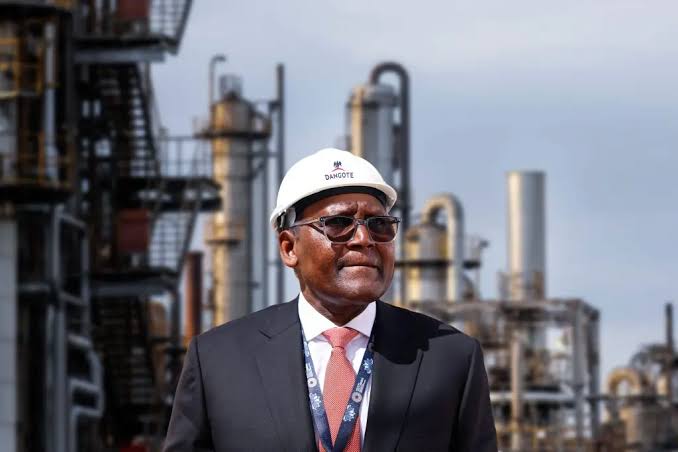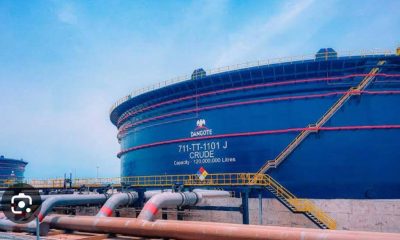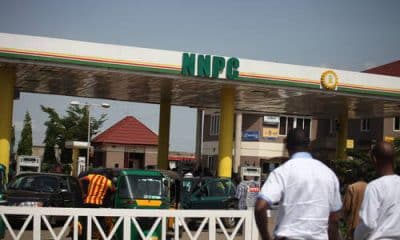Business
Dangote Refinery Kicks Off Fuel Exports To West African Countries

The Dangote Petroleum Refinery has officially started exporting refined petroleum products to neighbouring West African nations, a move that could reshape the regional fuel market.
A Bloomberg report on Tuesday, referencing data from Vortexa, Kpler, Precise Intelligence, and other sources, revealed that a tanker recently transported a shipment of gasoline from the Dangote Refinery to waters near Togo.
The vessel, CL Jane Austen, carried over 300,000 barrels of fuel westward.
Naija News reports that this development aligns with earlier remarks by Chairman of Ghana’s National Petroleum Authority, Mustapha Abdul-Hamid, who announced plans for Ghana to source petroleum products from the Dangote Refinery.
Speaking at the OTL Africa Downstream Oil Conference in Lagos, Abdul-Hamid explained that importing fuel from Nigeria instead of Europe could save Ghana up to $400 million monthly and reduce freight costs, which would, in turn, lower the prices of goods and services.
“If the refinery reaches 650,000bpd a day capacity, all that volume cannot be consumed by Nigeria alone, so instead of us importing as we do right now from Rotterdam, it will be much easier for us to import from Nigeria and I believe that will bring down our prices,” Abdul-Hamid noted.
Similarly, The PUNCH recently reported that the refinery is gearing up to export fuel to other African countries, including South Africa, Angola, and Namibia.
Negotiations are also underway with Niger Republic, Chad, Burkina Faso, and the Central African Republic.
A source close to the refinery disclosed that talks with several countries are at advanced stages.
“I can confirm to you that talks are actually at the advanced stage with Ghana, Angola, Namibia, and South Africa, while the initial discussion is coming up with Niger, Chad, Burkina Faso, and the Central African Republic,” the source said.
The gasoline shipment mentioned in the report is currently anchored off the coast of Lome, Togo, a hotspot for ship-to-ship fuel transfers.
It remains unclear where the cargo will ultimately be delivered, as such transfers often redirect fuel to other destinations.
While the shipment is relatively small by global standards, it signals the refinery’s growing production capacity and potential to disrupt fuel markets across the region.
The refinery had previously shipped its first gasoline cargo to Lagos, marking the start of its domestic fuel distribution.
Whether a significant portion of the refinery’s gasoline output will be exported in the future remains uncertain.










